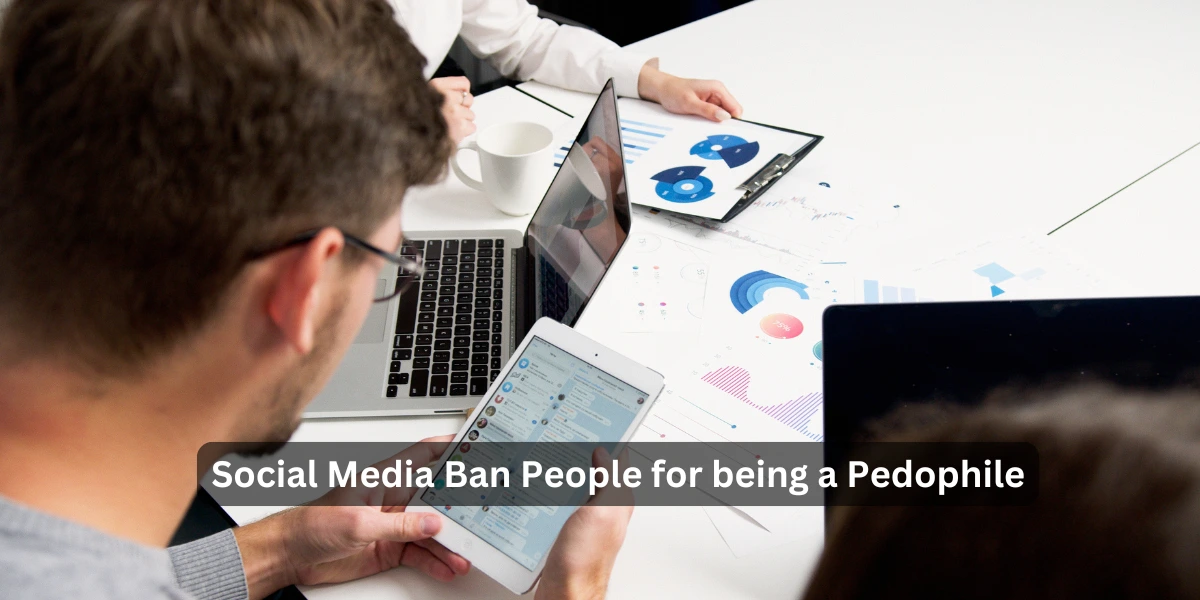
How Can Social Media Ban People for Being a Pedophile
Table of Contents
Table Of Content
- Introduction: How can Social Media Ban People for being a Pedophile
- Understanding Social Media’s Role in Preventing Abuse
- How Social Media Platforms Detect and Identify Pedophilic Behavior
- Reporting and Moderation: The Steps to Ban Predatory Users
- Challenges in Implementing Laws Against Social Media Ban People for Being a Pedophile
- Social Media Bans and their effects on pedophiles and prevention efforts.
- Preventive Measure: Informing Users, and Enhancing Detection Apparatus
- Conclusion : Social Media Ban People for Being a Pedophile
- Frequently Asked Questions (FAQs)
Introduction: How can Social Media Ban People for being a Pedophile
Social Media Ban People for Being a Pedophile Social media plays an imperative role in protecting social media users from undesirable content and activity, such as pedophilia. In reality, it is on account of online social communities that social media companies have designed strategies to track some individuals who perpetrate predatory activity. This involves advanced reporting mechanisms, monitoring algorithms, and appropriate ethical standards. And while it is indeed challenging to enforce such bans, it is important to understand mechanisms in place for preventing abuse and protecting the vulnerable.
Understanding Social Media’s Role in Preventing Abuse
Social media applications are now responsible for having safe spaces in which they can engage, share, and connect with other users. In this responsibility also comes the role to look into and try to prevent abusive activities, including predatory behavior such as pedophilia. Most platforms have strict community guidelines and policies against inappropriate or abusive content or behavior. By doing this, it deters those abusive actions while being able to provide instruments for reporting abusive behavior. It would mean, therefore, that social media networks are trying to protect minors and others at risk from exploitation.
How Social Media Platforms Detect and Identify Pedophilic Behavior
Pedophilic behavior is detected and identified by social media using a combination of automated tools and human moderators. Artificial and machine learning algorithms analyze text, images, and videos to flag content violating community guidelines, such as explicit language or inappropriate imagery. Platforms rely on keyword monitoring, pattern recognition, and reports from their users to help identify suspicious accounts or interactions. Beyond this, most of these platforms collaborate with law enforcement and child protection organizations to track and remove known offenders besides providing such information. Most of these tools constantly evolve in a striving move toward pre-escalation detection.
Reporting and Moderation: The Steps to Ban Predatory Users
Generally, banning of social media users follows through reporting systems when there is identification of pedophilic activity. Users are capable of flagging suspicious activities or content that go through a layer of both automated tools and human moderators. Social media sites are strict in implementing policies, and upon confirmation of violation, the account may get suspended or banned permanently. In extreme cases, the website can report the user to law enforcement for further investigation. This is protecting other users, especially kids, by removing harmful individuals from the site as fast as possible and preventing additional abuse.
Challenges in Implementing Laws Against Social Media Ban People for Being a Pedophile:
The key challenge that the enforcement of pedophilic behavior bans poses on social media is the mammoth scale of content and interactions on larger platforms. In other words, what is uploaded can hardly be monitored real time. Algorithms, although useful in their own right, might not catch subtle, disguised predatory behavior every time. Furthermore, those seeking to target someone could use coded language or even encrypted messaging to evade detection. Another problem is anonymity on the Internet, where one can present himself under a disguise of pseudo identities and avoid content control software. These difficulties make evident the need for constant improvement of detection systems along with more effective training of moderators coupled with stronger cooperation with law enforcement to effectively handle the issue.
Social Media Bans and their effects on pedophiles and prevention efforts.
The banning of pedophiles from social media can be extremely influential on both the offenders themselves and the efforts being made to prevent abuse in its entirety. For the offenders, the ban can severely hinder access to vulnerable individuals, effectively halting bad activities from reaching their worst extremes. It does not, however, eliminate the possibility since some might try to return under different identities. These bans, on the prevention side, will take their role as a deterrent to deliver a message that platforms are serious about child protection. They also shed light on the issue so that other people will report suspicious behavior and contribute to a safer online environment.
Preventive Measure: Informing Users, and Enhancing Detection Apparatus
This includes education for its users and more capable detection tools to prevent pedophilia on social media sites from identified offenders. While the focus is increasing to educating users on how to better recognize and report inappropriate behaviors, providing resources that can assist in the identification of potential predators, enhanced detection tools along with more advanced AI algorithms and sophisticated pattern recognition, are being developed to help detect dangerous behavior more quickly and more accurately. In addition, social media companies are contacting child protection organizations as well as police departments to work together to evolve their strategies and adapt to changing threats. This will facilitate the cause of ensuring the online world is safer by acting on the issue at both preventive and responsive levels.
Conclusion : Social Media Ban People for Being a Pedophile
In tackling the question of how can social media ban people from being a pedophiles, platforms apply various detection tools, reporting systems, and moderation techniques to identify and remove offenders. Despite such harassment challenges as evading tactics and massive content, the response to this issue is adequately advanced through technology, cooperation with the police, and other supporting agencies. It prevents individuals engaging in predatory activities from proceeding and informs the public that social media is serious about safety. When people are constantly educated, their detection capabilities are maximized, and proactive actions are taken to create a safer environment, the risk of abuse is reduced.
Read also : Is Deleting Social Media a Sign of Depression? Causes & Solutions
Frequently Asked Questions (FAQs)
It prohibits the use of “groomer” to prevent harassment and the spread of misinformation in sensitive situations like accusations of child molestation.
Calling someone a pedophile on Facebook without evidence is defamation. It would harm the reputation of a certain person falsely.
Whether registered sex offenders should be banned on social media is a thing of debate. Some believe that it ensures public safety, while others believe it is against their rights.




